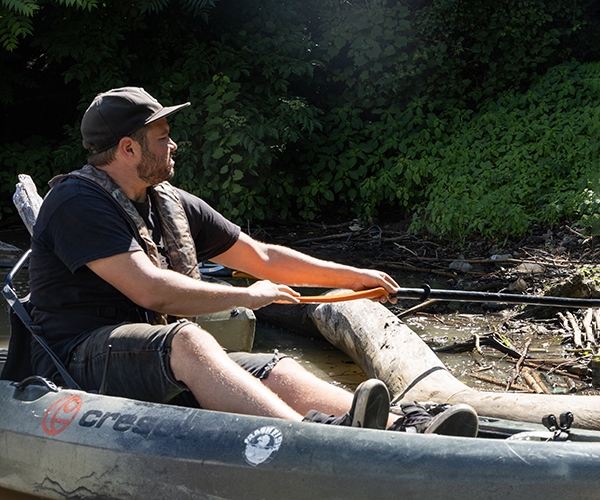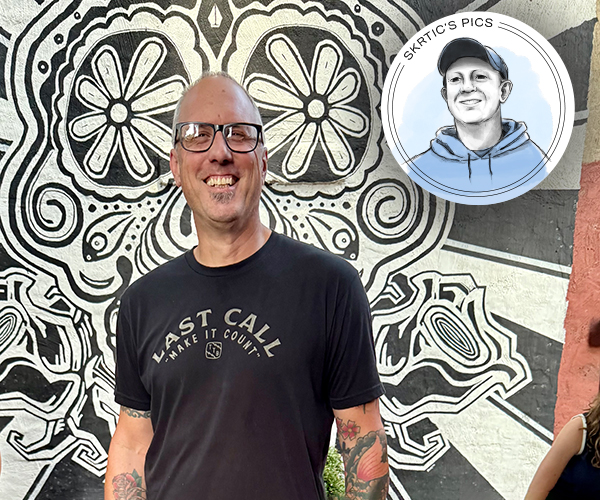The studio is a lot smaller than it looks on TV, and there are about 150 people sitting on rickety aluminum bleachers arranged around you.
My wife, two of my kids and some other relatives and friends were sitting directly behind me. During the show, the lights are low so you can't see anybody in the audience, but they're really close, maybe 10 feet away.
The first 10 questions were absurdly easy. I thought I would be nervous, that my hands would get clammy. But I was at ease. You have to zone everybody out, the audience, Meredith Vieira, all the lights and smoke. It's just you and the screen.
I didn't have to use any of the game's lifelines until I got to the $50,000 question that asked about the triangle used to predict probabilities.
I was pretty sure it was Pascal's triangle, but I needed reassurance, so I called Tom Benson, an aeronautical engineer at NASA, and he agreed.
The $100,000 question was, "Which of these headlines could accurately have appeared in newspapers on March 30, 1867?" The options were "Seward Owns an Icebox," "Garfield Shot in Train Station," "Panama Canal Open for Business" or "President Hayes, By a Nose."
I knew it right away. "Seward Owns an Icebox." It was something I remembered from high school. But I took my time. I wanted to be sure I hadn't read the question wrong. I had some trepidation. I was teaching at the time, and though I didn't know how many of my students would end up seeing the show, I didn't want to look like a schmuck.
Next came the $250,000 question: "Al Gore's famous and oft-ridiculed quote 'I took the initiative in creating the Internet' was made in 1999 to what journalist?" My ask-the-expert lifeline was journalist Ashleigh Banfield. I thought, Oh cool, she's going to know the answer. All the dominoes were falling. But she was only about 40 percent sure it was Wolf Blitzer, so I asked the audience. I was just playing for a little more time.
Most of the audience thought it was Larry King, so I used the double dip lifeline that lets you pick two answers. I had a strong feeling it was one of these two guys, and the answer ended up being Wolf Blitzer. I never thought for a second about not answering and just walking away with the money I'd already won.
Immediately after my correct answer there was a loud noise, signaling the end of the show. I got 10 minutes to go upstairs, change my shirt and come back down, so we could continue taping for the episode that would air the following day. When I got upstairs, it finally hit me: I've got $250,000 in my pocket right now. I was trembling.
When I came back to the set, I was thinking, Oh boy, this is really happening. The $500,000 question was, "In 1902, Willis Carrier became the father of modern air conditioning when he developed a humidity controller for use where? A: Bakery, B: Cigarette factory, C: Burlesque theater, D: Printing shop." I had 45 seconds and no lifelines. I also had no idea. If I got it wrong, I'd go home with just $25,000. I had played 100 practice games and knew my odds weren't good if I guessed.
I walked away. I still think it was the right thing to do.
Last summer I had a high school reunion, and my former history teacher was there. I told him, "You're not going to believe this, but I was on Who Wants to Be a Millionaire and ended up winning $250,000 because I remembered learning in your class that Seward bought Alaska in 1867." -- as told to Ryan Dezember



